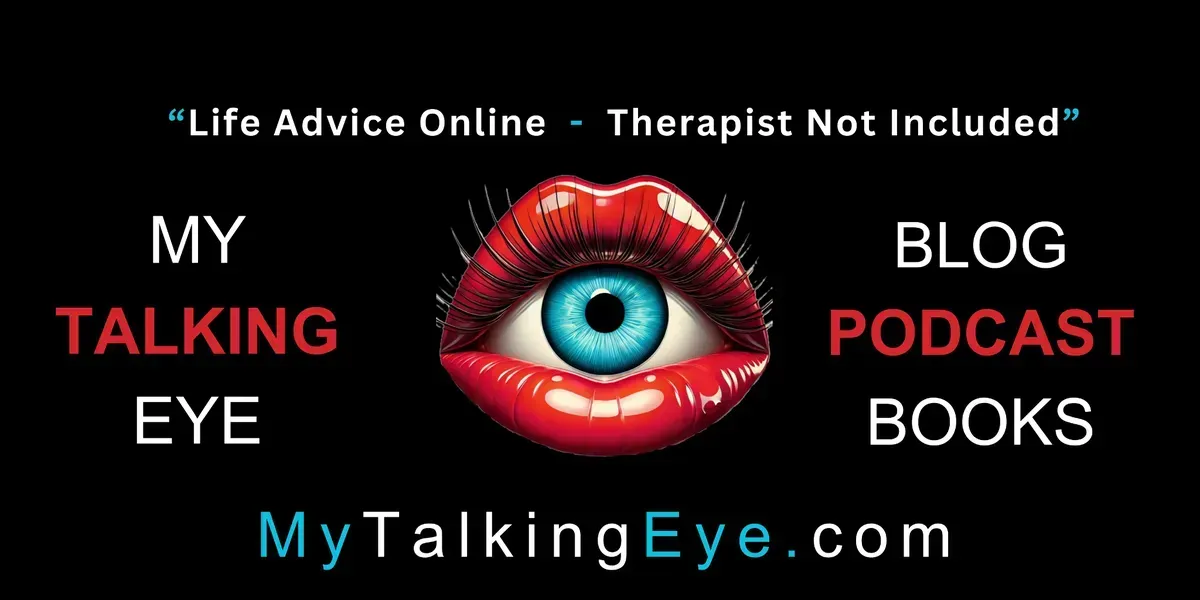

Grief: Time Doesn't Matter
When Time Stops: The First Days After Loss
First entry in the "Depths of Grief" blog series
There's a peculiar sensation that arrives in those first moments after you learn someone you love is gone. The world seems to split in two—there's the before, and there's the after. And somehow, impossibly, you're expected to continue existing in this new "after" world that makes no sense at all.
The Bubble of Unreality
The first thing I noticed was the silence. Not an external silence—in fact, there was noise everywhere. People talking, phones ringing, a clock ticking on the wall that suddenly seemed unbearably loud. The silence was inside me, a sudden vacuum where my thoughts should be.
"Are you okay?" someone asked, their voice sounding distant and distorted, as if I was underwater.
I nodded automatically. What else could I do? The truth was incomprehensible: No, I am not okay. I will never be okay again.
In those first hours, there's a protective bubble that surrounds you. Reality hasn't fully penetrated yet. You might find yourself doing strangely normal things—making coffee, answering emails, feeding the cat—all while a voice in the back of your mind screams that nothing is normal anymore.
When the Body Knows Before the Mind
Grief arrives in the body first. For me, it was a physical weight on my chest, making each breath a deliberate act. My hands wouldn't stop shaking. Food tasted like nothing. Sleep came in strange, disorienting bursts, if it came at all.
The experts call this "acute grief"—that initial period of intense physical and emotional responses. What they don't tell you is how it strips away your sense of control, how it makes you a stranger to yourself.
I found myself standing in the shower, unable to remember if I'd washed my hair. I'd start sentences and forget what I was saying halfway through. Hours would pass in what felt like minutes, or a single minute would stretch endlessly.
The Well-Meaning Crowd
Then there are the people. So many people, all at once, and then, eventually, no one.
They bring food you can't eat and say words you can't absorb. They hug you and you feel nothing, or they hug you and you collapse. There's no predicting which it will be.
"Let me know if you need anything," they say, and you nod, knowing you won't. How could you possibly articulate what you need when everything you need is gone?
The kindness is overwhelming, and yet somehow not enough—nothing could be enough to fill the void that's opened inside you. This isn't anyone's fault. It's just the nature of this terrible new reality.
Time Becomes Elastic
In those first days, time doesn't work properly anymore. Tuesday could be Friday for all you know. You might find yourself confused about whether something happened yesterday or last week.
"It's been three days," someone told me, and I was genuinely shocked. It felt like both three minutes and three years.
The world continues its relentless forward movement while you remain frozen at the moment everything changed. You watch people go about their lives—laughing in coffee shops, arguing over parking spaces, worrying about deadlines—and it seems impossible, offensive even, that the world hasn't stopped to acknowledge that everything is different now.
The Questions Without Answers
In the quiet moments, the questions come. The practical ones are hard enough:
Who do I need to call?
What arrangements need to be made?
How do I write an obituary when no words seem adequate?
But it's the existential questions that haunt the 3 a.m. darkness:
How do I live in a world where they don't exist?
Who am I now that I'm no longer someone's partner/child/parent/friend?
Will this hollowness ever go away, or is this simply who I am now?
A Different Kind of Surviving
There's no conclusion to this first phase of grief, no neat resolution or moment when the fog suddenly lifts. There's just surviving, breath by breath, minute by minute.
In those first days, success is measured differently:
Getting out of bed
Drinking a glass of water
Looking at photos without falling apart
Allowing yourself to fall apart
If you're reading this while in this phase, know that your only job right now is to exist. Everything else—the processing, the meaning-making, the moving forward—will come later, when you're ready. And you will be ready, someday, though that might be impossible to believe right now.
For now, survive. Breathe. Let the world hold you up when you cannot hold yourself.
And know that somewhere out there, someone else is reading these words and understanding exactly how you feel. In our brokenness, we are not alone.
In the next entry of "Depths of Grief," I'll explore the disorienting period when the initial shock fades and the world expects you to "get back to normal"—whatever that means now.
If you're struggling with overwhelming grief, please reach out to a professional. The National Grief Helpline (1-800-395-5755) is available 24/7 and can connect you with resources in your area.

Grief: Time Doesn't Matter
When Time Stops: The First Days After Loss
First entry in the "Depths of Grief" blog series
There's a peculiar sensation that arrives in those first moments after you learn someone you love is gone. The world seems to split in two—there's the before, and there's the after. And somehow, impossibly, you're expected to continue existing in this new "after" world that makes no sense at all.
The Bubble of Unreality
The first thing I noticed was the silence. Not an external silence—in fact, there was noise everywhere. People talking, phones ringing, a clock ticking on the wall that suddenly seemed unbearably loud. The silence was inside me, a sudden vacuum where my thoughts should be.
"Are you okay?" someone asked, their voice sounding distant and distorted, as if I was underwater.
I nodded automatically. What else could I do? The truth was incomprehensible: No, I am not okay. I will never be okay again.
In those first hours, there's a protective bubble that surrounds you. Reality hasn't fully penetrated yet. You might find yourself doing strangely normal things—making coffee, answering emails, feeding the cat—all while a voice in the back of your mind screams that nothing is normal anymore.
When the Body Knows Before the Mind
Grief arrives in the body first. For me, it was a physical weight on my chest, making each breath a deliberate act. My hands wouldn't stop shaking. Food tasted like nothing. Sleep came in strange, disorienting bursts, if it came at all.
The experts call this "acute grief"—that initial period of intense physical and emotional responses. What they don't tell you is how it strips away your sense of control, how it makes you a stranger to yourself.
I found myself standing in the shower, unable to remember if I'd washed my hair. I'd start sentences and forget what I was saying halfway through. Hours would pass in what felt like minutes, or a single minute would stretch endlessly.
The Well-Meaning Crowd
Then there are the people. So many people, all at once, and then, eventually, no one.
They bring food you can't eat and say words you can't absorb. They hug you and you feel nothing, or they hug you and you collapse. There's no predicting which it will be.
"Let me know if you need anything," they say, and you nod, knowing you won't. How could you possibly articulate what you need when everything you need is gone?
The kindness is overwhelming, and yet somehow not enough—nothing could be enough to fill the void that's opened inside you. This isn't anyone's fault. It's just the nature of this terrible new reality.
Time Becomes Elastic
In those first days, time doesn't work properly anymore. Tuesday could be Friday for all you know. You might find yourself confused about whether something happened yesterday or last week.
"It's been three days," someone told me, and I was genuinely shocked. It felt like both three minutes and three years.
The world continues its relentless forward movement while you remain frozen at the moment everything changed. You watch people go about their lives—laughing in coffee shops, arguing over parking spaces, worrying about deadlines—and it seems impossible, offensive even, that the world hasn't stopped to acknowledge that everything is different now.
The Questions Without Answers
In the quiet moments, the questions come. The practical ones are hard enough:
Who do I need to call?
What arrangements need to be made?
How do I write an obituary when no words seem adequate?
But it's the existential questions that haunt the 3 a.m. darkness:
How do I live in a world where they don't exist?
Who am I now that I'm no longer someone's partner/child/parent/friend?
Will this hollowness ever go away, or is this simply who I am now?
A Different Kind of Surviving
There's no conclusion to this first phase of grief, no neat resolution or moment when the fog suddenly lifts. There's just surviving, breath by breath, minute by minute.
In those first days, success is measured differently:
Getting out of bed
Drinking a glass of water
Looking at photos without falling apart
Allowing yourself to fall apart
If you're reading this while in this phase, know that your only job right now is to exist. Everything else—the processing, the meaning-making, the moving forward—will come later, when you're ready. And you will be ready, someday, though that might be impossible to believe right now.
For now, survive. Breathe. Let the world hold you up when you cannot hold yourself.
And know that somewhere out there, someone else is reading these words and understanding exactly how you feel. In our brokenness, we are not alone.
In the next entry of "Depths of Grief," I'll explore the disorienting period when the initial shock fades and the world expects you to "get back to normal"—whatever that means now.
If you're struggling with overwhelming grief, please reach out to a professional. The National Grief Helpline (1-800-395-5755) is available 24/7 and can connect you with resources in your area.
